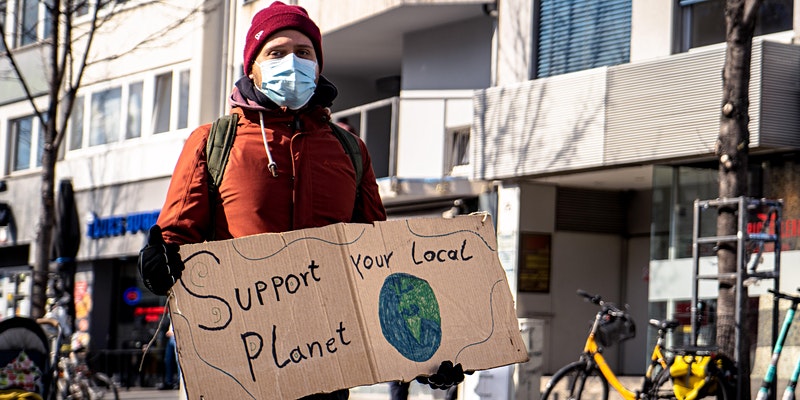Intersections of COVID-19 and the Climate Emergency
12 October 2021

Hosted by the University of Alberta Sustinability Council & Kule Scholars Program
When: October 18, 2021
Time: 12:00 - 1:00PM MDT
Format: Online
Register via Eventbrite
When COVID-19 emerged in the midst of the ongoing climate emergency, policymakers demonstrated how quickly they could enact widespread responses to an urgent problem. Yet, Canada's GHG emissions have increased faster than any other G7 nation since signing the Paris Agreement in 2016. Join public health experts Dr. Sherilee Harper (UAlberta), and Dr. Steven Hoffman (York University, CIHR) as they discuss the intersections between climate and COVID-19, including how lessons from the policy response to COVID could inform responses to the climate emergency.
Dr. Sherilee Harper is a Canada Research Chair in Climate Change and Health and an Associate Professor in the School of Public Health at the University of Alberta. Her research investigates associations between weather, environment, and public health in the context of climate change, and she collaborates with partners to prioritize climate-related health actions, planning, interventions, and research. She is a Lead Author on the Intergovernmental Panel on Climate Change (IPCC) Special Report on the Ocean and Cryosphere in a Changing Climate; Lead Author on the IPCC’s Sixth Assessment Report; serves on the Gender Task Group for the IPCC; and is a Lead Author on Health Canada’s upcoming Climate Change and Health Assessment Report.
Dr. Steven J. Hoffman is the Dahdaleh Distinguished Chair in Global Governance & Legal Epidemiology and a Professor of Global Health, Law, and Political Science at York University, the Director of the Global Strategy Lab, the Director of the WHO Collaborating Centre on Global Governance of Antimicrobial Resistance, and the Scientific Director of the CIHR Institute of Population & Public Health at the Canadian Institutes of Health Research. He holds a courtesy appointment as a Professor of Health Research Methods, Evidence & Impact (Part-Time) at McMaster University. He is an international lawyer licensed in both Ontario and New York who specializes in global health law, global governance and institutional design. His research leverages various methodological approaches to craft global strategies that better address transnational health threats and social inequalities. Past studies have focused on access to medicines, antimicrobial resistance, health misinformation, pandemics and tobacco control.
This event is in partnership with the Kule Scholars program.
Photo by Mika Baumeister.